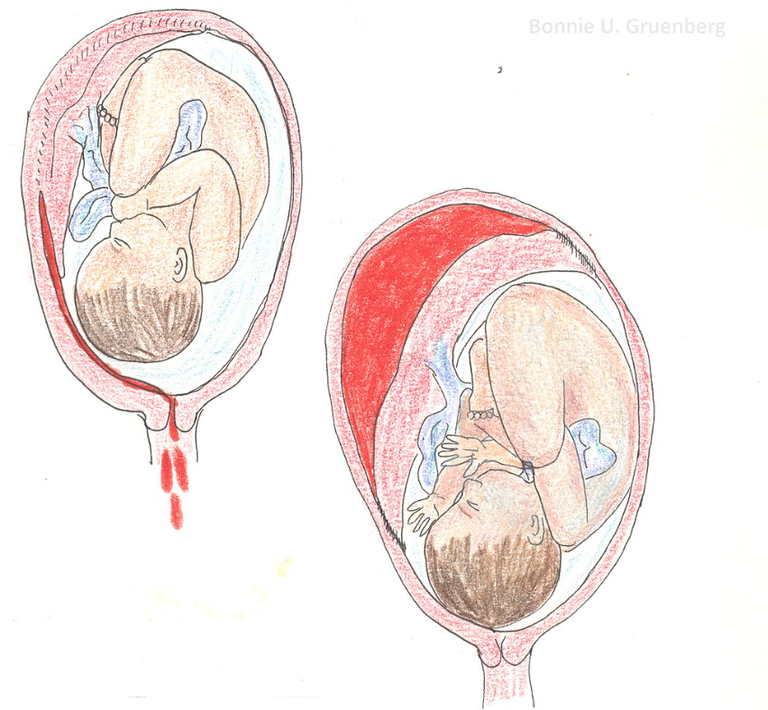Last week, on a Wednesday evening, I had just returned from the office when my phone buzzed with a call that would change everything. It was a friend, and despite the gravity of the news he was about to share, his voice remained surprisingly calm. He needed my help to bury his 34-week-old fetus, a heartbreaking consequence of a placenta rupture that doctors couldn't prevent due to the mother's delayed arrival at the clinic.
As we coordinated the burial arrangements, the mother's life teetered on the edge in the Intensive Care Unit. We managed to finalize the somber task before sunset. I tried my best to console my friend, knowing this would have been their first child.
The following Thursday morning, around 9 am, another call arrived, delivering an additional blow. The mother, who had been in the ICU since the incident, had succumbed to the ordeal. Even though I wasn't directly impacted, the news was undeniably tough to digest.
Everything unfolded within a cruel span of less than 48 hours. Prior to this tragedy, both the mother and fetus had been progressing well. Regular antenatal care had revealed no issues, making the sudden turn of events even more bewildering. According to my friend, the nightmare began on Tuesday night.
My friend, a dentist in a Nigerian government hospital, had a wife in her final year of pharmacy studies at a prominent government university. Their marriage, mostly distant due to work and studies, was anticipated to become more permanent after the completion of the wife's program.

On that fateful Tuesday night, she complained of chronic back pain, prompting a call to my friend. He advised her to seek medical attention at the nearest hospital since the school's health center would be ill-equipped during that time of day. Due to logistical challenges, she couldn't make it to the hospital until early Wednesday morning, by which time she was already experiencing bleeding.
Compounding the tragedy, she was referred to another hospital after a significant delay. It was there that the heartbreaking news unfolded—the fetus was no longer viable, the placenta had ruptured, and immediate evacuation was necessary. The specifics of the evacuation procedure remained unasked, but the aftermath landed the mother in the ICU.
Reflecting on potential causes of the placenta rupture, I delved into research, finding a recurring theme—age. Marrying later in life, especially if both partners are closer in age, may heighten the risk of placenta rupture. Though speculative, this detail added another layer of complexity to an already confounding situation.
However, placenta rupture during pregnancy is a multifaceted concern influenced by factors beyond age. Medical conditions like hypertension and diabetes can compromise placental integrity, disrupting blood flow. Additionally, multiple pregnancies, such as carrying twins, can strain the placenta, potentially leading to rupture.
Conditions like placenta previa, where the placenta covers the cervix, and uterine overdistension due to rapid uterine growth or excessive amniotic fluid further contribute to the risk. Trauma, such as abdominal impact, smoking, substance abuse, infections, and poorly controlled blood pressure are also implicated.
While ultrasound and other diagnostic tools offer valuable insights into fetal health, there currently exists no definitive diagnostic tool for assessing the likelihood of a pregnant woman experiencing placenta rupture. Pregnant individuals can only strive to maintain a healthy lifestyle, undergo regular check-ups, and hope for the best.
In the unfortunate event of experiencing premature contractions, abdominal cramps, or vaginal bleeding during pregnancy, seeking immediate medical attention is paramount, as these symptoms could be indicative of placenta rupture. The stark reality of this tragedy underscores the importance of awareness and proactive care for expectant parents, navigating the delicate journey of pregnancy with vigilance and a commitment to well-being.
As awful as this sounds, sometimes there is no reason - it just happens. Childbirth is inherently risky. When my grandson was born I was terrified all day that something would happen to either of them - but he was born at 35 weeks, healthy, and Mum did grand. I can't even imagine the pain your friend is going through right now. What a terrible shock.
It's really terrible. Women that willingly choose to get pregnant and give birth are the true heroes of this world. They risk their lives to perpetuate human population. I wish all pregnant women a safe delivery.
Indeed. It's quite remarkable.
Thanks for your contribution to the STEMsocial community. Feel free to join us on discord to get to know the rest of us!
Please consider delegating to the @stemsocial account (85% of the curation rewards are returned).
You may also include @stemsocial as a beneficiary of the rewards of this post to get a stronger support.
It is really a sad fact that women are still dying of childbirth. I hope, in the near future we'll have the technology or a system that would be helpful in preventing these types of deaths.
My condolences
Congratulations @gentleshaid! You have completed the following achievement on the Hive blockchain And have been rewarded with New badge(s)
Your next target is to reach 53000 upvotes.
You can view your badges on your board and compare yourself to others in the Ranking
If you no longer want to receive notifications, reply to this comment with the word
STOPCheck out our last posts: